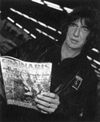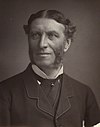Authors
Novelists, playwrights and screenwriters
| Image | Name | Join Date | Theme | Comments | Refs |
|---|---|---|---|---|---|
| William Hurrell Mallock | 1869 | novel | Catholic writer who opposed socialism | [1] : 62 | |
 | Sir Anthony Hope Hawkins | 1881 | adventure fiction | The Prisoner of Zenda | [2] : 9 |
 | Aldous Huxley | 1913 | dystopian fiction | author of Brave New World and The Doors of Perception, widely acknowledged as one of the foremost intellectuals of his time, nominated for the Nobel Prize in Literature nine times, and elected Companion of Literature by the Royal Society of Literature in 1962 | [2] : 157 |
 | L. P. Hartley | 1915 | family relationships | wrote of morality, society and the loss of innocence The Go-Between was made into a film. | [2] : 178 |
 | Beverley Nichols | 1916 | emotions | "Down the Garden Path" | [2] : 200 |
 | Nevil Shute | 1918 | dignity of work | His novels A Town Like Alice, Trustee from the Toolroom and On the Beach featured on the 1998 list of the Modern Library 100 Best Novels of the 20th century | [2] : 200 |
| Thomas Owen Beachcroft | 1921 | publicist, poet and writer | Chief Overseas Publicity Officer for the BBC A Young Man in a Hurry and Other Stories 1934 The English Short Story 1964 | ||
 | Graham Greene | 1922 | thriller | One of the leading novelists of the 20th century, shortlisted for the Nobel Prize in Literature several times. Best known for his 'Catholic novels' exploring moral and political conflicts, especially the contest between the socialist state and private morality. Awarded OM. | [3] : 5 |
| Anthony Powell | 1923 | book series | His famous series A Dance to the Music of Time (ranked 36th on the BBC list of 100 greatest British novels [4] ) earned him the title 'The English Proust'. | [3] : 7 | |
 | Robertson Davies | 1935 | trilogy | One of Canada's best-known and most popular authors and one of its most distinguished "men of letters". His prize-winning novels and trilogies explore Jungian psychology, magic and classical myth. | [3] : 50 |
| Dan Davin | 1936 | New Zealand | Rhodes Scholar, Fellow "Cliffs of Fall" | [3] : 57 | |
| W. J. Burley | 1950 | detective story | Wycliffe | [3] : 159 | |
| Kyril Bonfiglioli | 1955 | comedy thriller | Mortdecai | [3] : 211 | |
| Robert Barnard | 1956 | crime fiction | "Death of an Old Goat" | [3] : 221 | |
 | Ian Watson | 1960 | science fiction | Warhammer 40,000 trilogy | [3] : 282 |
| Martin Fido | 1963 | true crime | Fellow Taught English at University of the West Indies and Boston University | ||
| Martin Edwards | 1974 | crime novelist | Winner of the Diamond Dagger Lake District Mysteries "a crime writer's crime writer" winning Captain Christmas University Challenge | [3] : 436 | |
| Mick Herron | 1981 | espionage | Winner of the Gold Dagger Slough House novel series Slow Horses TV series | [3] : 508 | |
| Charlotte Jones | 1986 | playwright | The Halcyon WW2 period drama TV series | [3] : 550 | |
 | Amit Chaudhuri | 1987 | creative writing | "A Strange and sublime address" | [3] : 552 |
 | Zia Haider Rahman | 1987 | trust | In the Light of What We Know | [3] : 554 |
 | Rana Dasgupta | 1990 | globalisation | Tokyo Cancelled | [3] : 239 : 562 |
Biographers including auto-biographers
| Image | Name | Join date | Theme | Comments | Refs |
|---|---|---|---|---|---|
 | John Evelyn | 1637 | diarist | FRS did not graduate | [5] |
 | John Gibson Lockhart | 1809 | novelist biographer | wrote standard biography of Sir Walter Scott, his father-in-law | [6] |
 | John Addington Symonds | 1857 | biographer | wrote on Percy Bysshe Shelley, Michelangelo et al. | [1] : 24 |
 | Sir Sidney Lee | 1878 | man of letters | editor, Dictionary of National Biography | [1] : 112 |
| John Stewart Collis | 1918 | biographer | biography of George Bernard Shaw The Worm Forgives the Plough about working the land in WWII | [7] : 12 | |
 | Peter Quennell (left) | 1923 | historical writer | "the last genuine example of the English man of letters" | [7] : 32 [8] |
| Francis King | 1941 | novelist | Yesterday Came Suddenly, 1993 autobiography | [3] : 91 | |
| Nicholas Mosley | 1946 | novelist | peer, wrote critical biography of his father, the fascist Sir Oswald Mosley | [3] : 122 | |
| Warren Rovetch | 1949 | travel writer | Fulbright Scholar The Creaky Traveler | [3] : 154 [9] | |
| Ved Mehta | 1956 | author | Fellow, blind autobiographer in several books | [3] : 227 | |
 | Howard Marks | 1964 | cannabis dealer | Served 7 years of a 25 year prison sentence in Terre Haute, Indiana after which he wrote the bestseller Mr Nice and became an activist for the legalisation of cannabis | [3] : 326 |
| Johnny Acton | 1984 | ghostwriter | Farmer cookery writer |



















